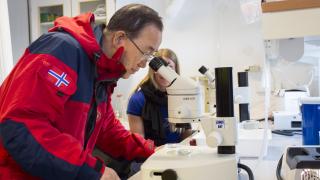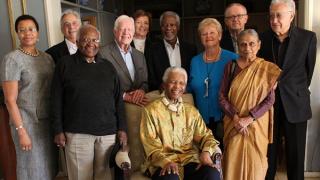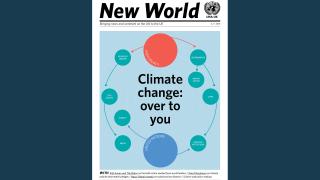
“And what’s the UN doing about all these refugees? Nothing.” “Doesn’t surprise me – it’s a waste of space.”
Travelling home after a UNA-UK event to mark the UN’s 70th anniversary, I wondered what my fellow commuters would have made of Oxfam’s Winnie Byanyima, who had praised the UN “as an African and a woman” for its role in furthering decolonisation and gender equality. Should the well-dressed British men on the train be similarly effusive?
I think so. While the UN has delivered much for the poor, Western states have gained more from the post-1945 system, which favours them in structure and approach. International agreements have allowed trade to flourish. Humanitarian assistance has largely insulated us from crises. Wars have occurred somewhere else. Now, as the system comes under severe strain, we are scared by the fall-out on our doorstep: the refugees, for instance, for whom under-funded UN agencies can no longer care.
Climate change is adding to the pressure. According to the Environmental Justice Foundation, it is already uprooting around 27 million people a year. In a 2014 report, the UK Ministry of Defence set out worst-case scenarios for a 2 degrees temperature rise: 3.9 billion people suffering water shortages, over 100 million affected by desertification, and coastal regions and islands devastated by rising sea levels.
Given European reluctance to shelter people fleeing barrel bombs, it is unlikely that ‘climate refugees’ will be welcomed with open arms. The term does not yet have legal force. The 1951 UN Refugee Convention covers persecution on racial, religious, political or social grounds; it is generally operated on an individual basis and includes provisions relating to return. It does not easily address the disappearance of entire countries and there is little appetite to expand its scope amidst the current crisis. But those displaced by climate change cannot be treated like ‘economic migrants’, itself a problematic label. Their needs are radically different from, say, the 5.5 million Britons who have left home to seek better pay, services and sunshine abroad.
States must begin work on a new framework that combines climate, development and humanitarian responses, from disaster preparedness to large-scale resettlement. Wary of taking in people, rich countries have tried to stop this issue being discussed in Paris. However, momentum is building ahead of next year’s World Humanitarian Summit, with over 100 countries now involved with the Nansen initiative on climate and disaster-induced displacement.
Progress in this area could improve existing refugee responses. The average duration of a refugee situation is now a staggering 17 years – a long time to press pause on a person’s life. We need to move away from our current approach, which sees people languishing in camps or given restrictive asylum-seeker status, to permanent solutions, including resettlement. Countless studies indicate that migrants and refugees are net contributors to their host societies: in 2013 the OECD put the figure at €5,000 a year per migrant household. They also send home about three times the total development aid budget. We are clearly missing not one but several tricks.
Western governments must recognise that borders don’t matter when it comes to climate change. In a connected world, solidarity and self-interest increasingly yield the same responses: we have a stake in helping others and in making the international system work for them as well as for us. If nothing else, we should accept that with global instability and sea levels on the rise, we too may need shelter one day.
Comments: @Natalie_UNA or samarasinghe@una.org.uk.
Natalie Samarasinghe is Executive Director of UNA-UK

















